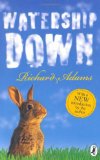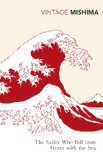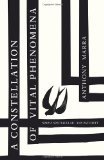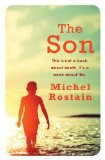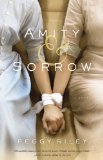
Amity and Sorrow by Peggy Riley
Five words from the blurb: daughters, born, cult, rural, help
Amity and Sorrow has been receiving almost universal praise from the blogging world. I was impressed by the writing quality, but unfortunately the subject matter wasn’t for me.
Amity and Sorrow are two teenage girls who escape from a fundamentalist cult with their mother, Amaranth. Amity loves her new freedom, but Sorrow longs to be back with her tyrannical father.
The writing in this book was fantastic. The characters were beautifully drawn and the descriptions were atmospheric and absorbing. I should have loved this book, but unfortunately there were two problems.
The first was that the plot was very basic. It meandered from one scene to the next with no forward momentum. As the book was quite short I could probably have coped with this, but unfortunately I have a very low tolerance for religion in books and as this content increased I became more frustrated. I wanted to slap all the characters (a good sign I was engaged with them!) but I couldn’t bear to read page after page of information about life in a cult.
I abandoned it, but if you have a higher tolerance for reading about fundamentalist religions then you’ll probably love it.
DNF
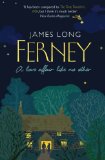
Ferney by James Long
Five words from the blurb: Somerset, house, past, strange, connection
Ferney is one of those sleeper hits that occasionally crops up in conversation. It isn’t well known, but everyone who’s read it seems to love it. I bought a copy, keen to see why this was the case.
The book is set in Somerset and centres on Mike and Gally, a couple who fall in love with a dilapidated cottage that they come across by chance. They manage to persuade the owner to sell it to them and start restoring it straight away. Whilst working on their new cottage they meet Ferney, a strange old man who seems to know everything about the local area.
The book immediately reminded me of Outlander (Cross Stitch in the UK). Unfortunately I wasn’t a fan of Gabaldon’s book, but many of you are so I thought you’d like to know about this one. Ferney uses reincarnation to catch glimpses of the past, instead of the time travel present in Outlander, but the two books share the same corny romance, poor writing and unrealistic plot. If you’re looking for a light, escapist read then you’ll love this book, but I’m afraid it wasn’t for me.
DNF

Intrusion by Ken Macleod
Shortlisted for the 2013 Arthur C. Clarke Award
Five words from the blurb: future, pill, eradicate, genetic, defects
Intrusion is set in the near future at a time when women can take a pill during pregnancy to eradicate abnormalities in the fetus. The book follows Hope, a woman who decides not to take the pill, as her pregnancy progresses and friends, relatives and the authorities try to persuade her to change her mind.
I first heard about this book when I read an intriguing review on David’s blog. I’m drawn towards books that investigate the issues surrounding the eradication of disability and so picked up a copy from my library. Unfortunately this book failed to grip me and I abandoned it after about 100 pages.
The writing was very light and so fast paced that I felt the real issues were ignored. The book seemed to concentrate on whether it was legally possible to force women to take the pill and these discussions lacked any real weight:
‘Much as it pains me as a not very good Catholic,’ Fiona said, with a wry look, ‘I have to tell you that there are non-religious faith objections, if you see what I mean. Off the top of my head, uh, Green Humanism for one…’
Hope burst out laughing.
‘Green humanism? What’s that? Humanism for little green men?’
‘It’s about leaving nature alone, as I understand it,’ said Fiona a little stiffly.
I skim read a bit further and discovered the genetic difference present in Hope’s baby. This lost the book any credibility it might have had and rolling my eyes I put the book down for good.
Recommended to those who enjoy light science fiction.
DNF
Have you read any of these books?
Did you enjoy them more than I did?

